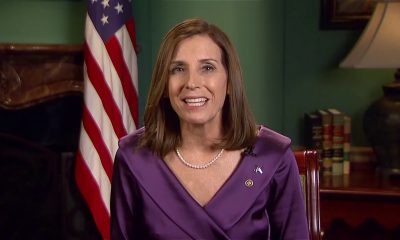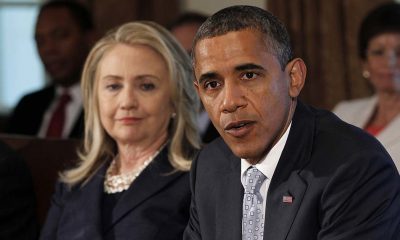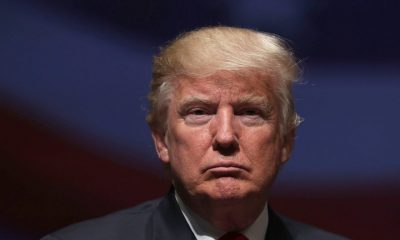World
US Fed Reserve may raise interest rates by midyear

Washington: In a move that would likely impact both emerging markets like India and advanced economies, the US central bank Wednesday dropped an assurance to be “patienta” in raising interest rates and signaled the hike could come by mid year.
But in a statement issued after a two-day meeting of its policy-making committee, the Federal Reserve also emphasised that it might still delay the decision to raise the rates for the first time since the 2008 financial crisis, until later this year.
The Fed’s announcement moved the central bank to the verge of ending a period of more than six years in which it has held short-term interest rates near zero.
“Just because we removed the word patient from the statement doesn’t mean we are going to be impatient,” Fed chairperson Janet Yellen said at a press conference here at the end of Federal Open Market Committee’s (FOMC) two-day meeting.
In a statement issued after the meeting, the committee said it will be appropriate to tighten “when it has seen further improvement in the labor market and is reasonably confident that inflation will move back to its 2 percent objective over the medium term.”
The central bank stressed that it has not decided on the timing of the initial increase and that action is “unlikely at the April meeting.”
“The committee anticipates that it will be appropriate to raise the target range for the federal funds rate when it has seen further improvement in the labor market and is reasonably confident that inflation will move back to its 2 percent objective,” it said.
Striking an optimistic note about the economic outlook for the US, the committee said it “expects that, with appropriate policy accommodation, economic activity will expand at a moderate pace.”
The stock market surged on the news. The Dow was falling over 100 points before the Fed statement and is now over 100 points higher.
Dropping “patienta” gives the Fed more options on when it wants to raise interest rates. While the expectation is for an initial rate hike in June, the Fed has repeatedly said that it will only take action if the economy stays healthy, CNN said.
“Removing the word ‘patience’ simply gives the Fed flexibility,” it said citing Greg Valliere, chief political strategist at Potomac Research Group.
The key factors the Fed will be watching as it decides when to raise rates are hiring, inflation, economic growth and the increasingly valuable — perhaps too valuable — US dollar, CNN said.
Ahead of the Fed meeting, IMF Managing Director Christine Lagarde had warned that emerging markets like India must prepare for the impact of a rise in US interest rates.
In a speech at Reserve Bank of India in Mumbai Tuesday, she also warned that markets could be heading for a repeat of the 2013 “taper tantrum.”
World
Lockdowns in China Force Urban Communities to Defy Censorship and Vent Frustration Online

Shanghai’s rich middle class is leading a wave of online dissent over the strict and prolonged lockdowns imposed in various parts of the country. Chinese internet censorship is struggling as patience is wearing thin in many urban centers, coming up with creative forms of online protests.
Social Media Posts Revealing Lockdown Tension in Shanghai
Drawn-out lockdowns are nothing new in China as authorities insist with the nation’s zero-Covid policy since the start of the pandemic. Currently over This time around, however, metropolitan areas like Shanghai are increasingly difficult to keep quiet, given that its more than 25 million residents have seen weeks of total isolation along with food shortages and many other service interruptions.
Dozens of towns and reportedly over 300 million Chinese citizens have been affected by lockdowns of different severity. As expected, urban netizens have been most outspoken over their difficulties by finding creative ways to get around state censorship and bans placed on topics, news comments and spontaneous campaigns.
Shanghai residents have been using mobile proxies and hijacking seemingly unrelated hashtags to talk about healthcare issues, delivery failures and the overall severity of their situation. The “positive energy” that the Chinese government wants to transmit during the recent prolonged series of lockdowns does not come naturally to those counting food supplies and online censors are working hard to filter words, trending topics and undesired social media sharing.
WeChat groups and message threads are under constant monitoring. Posts questioning the zero-Covid approach have been quickly deleted, including by leading Chinese health experts like Dr. Zhong Nanshan. Video footage is soon censored and protests and investigations are quickly made to disappear.
Where this has not worked, officials have exposed banners with warnings and outright threats like “watch your own mouth or face punishment”, while drones have been patrolling the city skies. Yet, if anything, this has led to further tensions and unspoken confrontation with Shanghai’s educated and affluent middle class.
Creative Online Solutions Harnessing Civic Energy
Announcements by Chinese social media that they would be publishing the IP addresses of users who “spread rumors” have not helped either. Tech industry research has shown that much of Asia’s tech-savvy population has a habit of using mobile proxies and other privacy tools, quickly finding workarounds to browse the internet freely and talk to the world about the hottest topics.
The sheer volume of forbidden posts is already a challenge for the very censorship system, experts explain. Unable to track all trending hashtags, state workers overlook topics that speak about the US, Ukraine or other popular news. Linking human rights elsewhere to their situation, Chinese online dissidents establish their informal channels and “hijack” the conversation to share personal or publicly relevant information about the Covid suppression in their town.
Sarcastic and satirical posts still dominate. Others hope to evade the censors by replacing words from famous poems or the national anthem. One thing is certain – social media, when harnessed with the right creativity, has proven its ability to mount pressure on the government in even some of the most strictly controlled tech environments like China.























